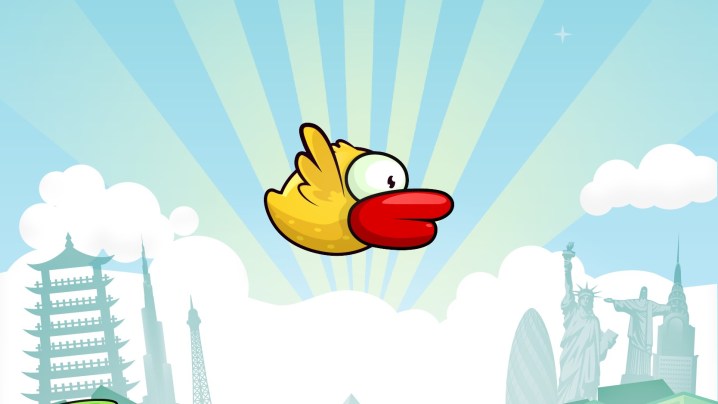
The original creator of Flappy Bird has disavowed the just-announced mobile remake, connecting it to crypto and distancing himself from the project.
The new game, announced last week, was the “official” return of the mobile games classic, and would be including the core gameplay, along with new single- and multiplayer game modes and characters. Developer Dong Nguyen posted a short statement on X (formerly Twitter) clarifying that he was not involved with the new game, and “I also don’t support crypto.”
No, I have no related with their game. I did not sell anything.
I also don't support crypto.— Dong Nguyen (@dongatory) September 15, 2024
While the original press release doesn’t note any explicit connection to Nguyen, the Flappy Bird marketing materials seem to specify a connection. “Just a decade ago, I was the talk of the town … Sadly, I had to leave the fame and spotlight behind to go home and find out who I really am,” the website homepage says. It goes on to say that it “worked with my predecessor to uncage me.” This could refer to Nguyen, but also Kek, the developer behind Piou Piou vs. Cactus, credited as the spiritual predecessor to Flappy Bird.
The crypto comment refers to research done by cybersecurity researcher Varun Biniwale, who published a post to his website Thursday laying out some “fishy” aspects, as Biniwale called it, with the project. He wrote that Michael Roberts, the chief creative behind the new Flappy Bird, was connected with a company called 1208 Productions, which owned the NFT brand Deez and worked in web3 since 2021. While Roberts’ X profile lists 1208 Productions’ website in Biniwale’s post, it now just lists the new Flappy Bird website. 1208’s website, at the time of this writing, doesn’t list any of its web3 or NFT projects, but you can see them in through the Wayback Machine.
Biniwale also dug into the website’s metadata, pulling out some prototypes that mention connecting the game to various crypto wallets, and leaderboards that appear to include crypto influencers.
Nguyen published Flappy Bird on mobile games stores starting in 2013, but removed it in 2014 because it had “become an addictive product,” he told Forbes. He hasn’t touched it since, although many developers tried to cash in on the craze with clones.
According to court documents from the U.S. Patent and Trademark Office (thanks to developer Sam “Samperson” Chiet for this X thread), Gametech Holdings LLC, the company named by Flappy Bird Foundation as the copyright owner, filed a claim on the trademark in 2023. Additionally, it appears a company called Mobile Media Partners, registered at the same address as Gametech, attempted to officially register a trademark in February 2014 around the time the original Flappy Bird was taken offline for a website called flappybirdreturns.com. The documents say that it had “reserved/acquired the name from Apple in their Apps Store.” It was officially registered in 2018.
Another document from 2023 states that Gametech, the now-owner, had to use it before March 27, 2024. Looks like Nguyen filed an opposition — also in March 2024. However, the lawyers for Gametech said that Nguyen hadn’t used the Flappy Bird name in a decade and had publicly disavowed it. An exhibit also points to the trademark registration in 2018. Nguyen then didn’t meet certain deadlines in the proceedings, so the claim against Gametech was terminated.
The Flappy Bird website claims that there was a “decade-long mission” that involved “acquiring legal rights.”
Services Marketplace – Listings, Bookings & Reviews
